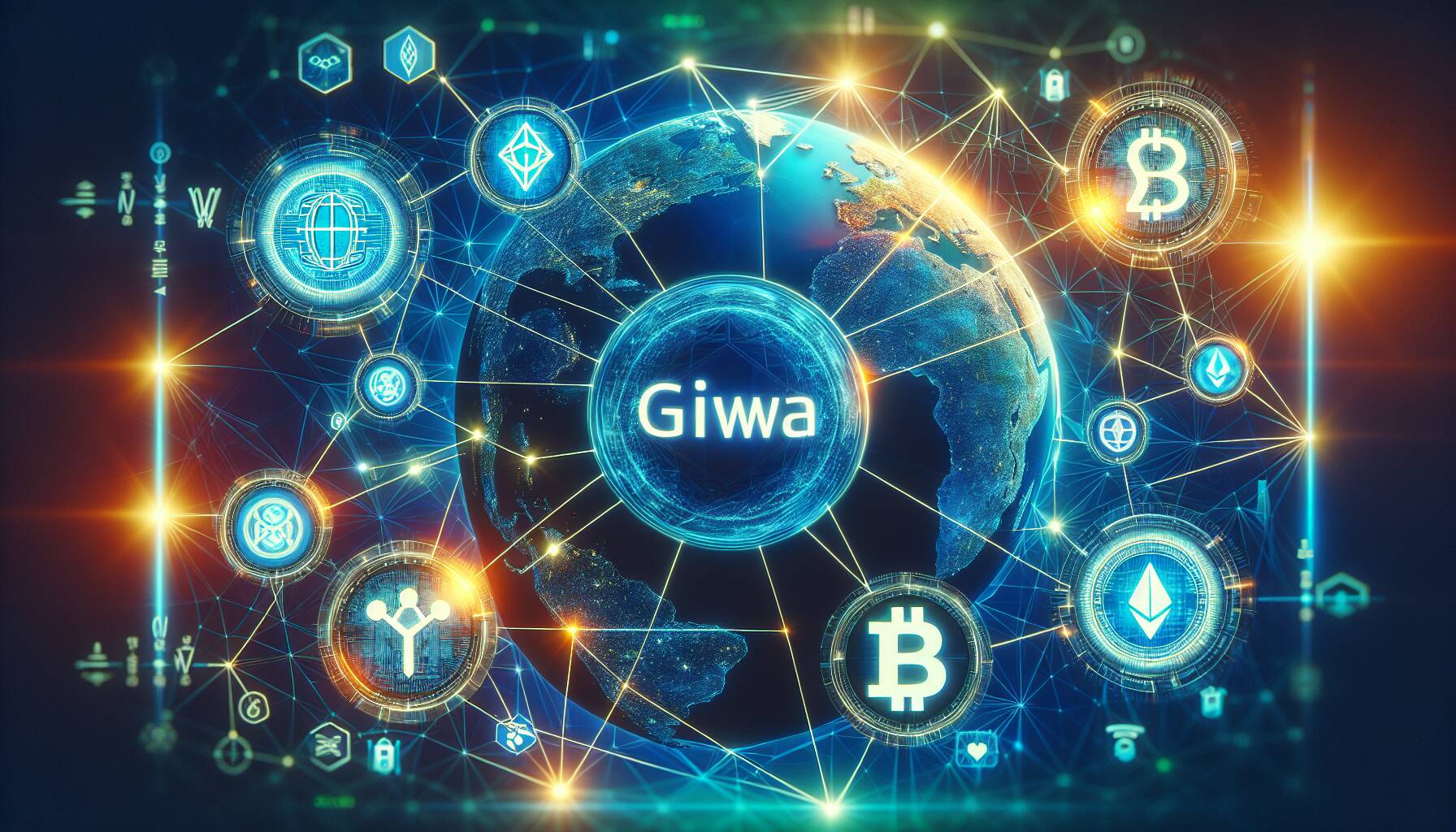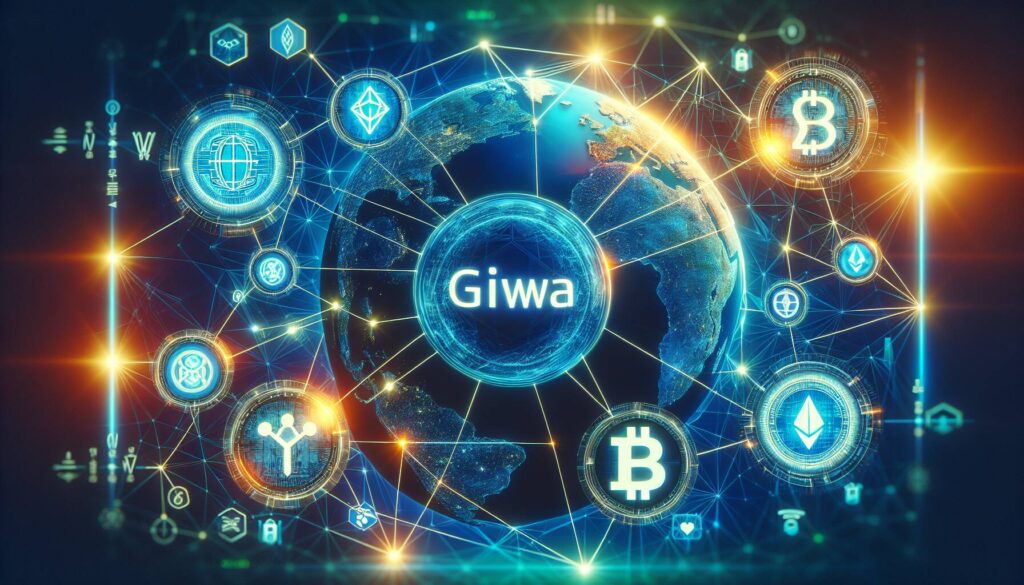Dunamu, the parent company of the widely used South Korean cryptocurrency exchange Upbit, has launched a new Web3 infrastructure brand named GIWA during the Upbit Developer Conference (UDC) in Seoul. This new initiative aims to simplify access to blockchain technology for developers and users in South Korea and internationally. GIWA, an acronym for “Global Infrastructure for Web3 Access,” includes features like the GIWA Chain and the GIWA Wallet, which are designed to enhance the digital asset experience.
The GIWA Chain is a layer-2 blockchain leveraging Optimistic Rollup technology, focusing on efficient data stacking and the secure handling of smart contracts. As Dunamu highlighted, the name GIWA is inspired by traditional Korean roof tiles that are layered for durability, symbolizing the robust structure that their blockchain aims to provide. Currently, GIWA Chain is available in its testnet phase, allowing developers to explore its capabilities.
Additionally, the GIWA Wallet is a mobile application that enables users to store and transfer digital assets across various blockchains, including Ethereum, Base, Arbitrum, Avalanche, and Polygon, alongside its own GIWA Chain. Though the wallet is available for demonstration at the conference, its official launch date remains pending.
Dunamu announced this initiative as a strategic move to enhance local Web3 infrastructure, particularly in light of the increasing influence of blockchain ecosystems based in the U.S. and Singapore. By fostering a more accessible platform, the company aims to attract more Korean developers into the rapidly evolving world of Web3. Initial buzz surrounding GIWA began with trademark applications surfacing online, with the official website launching shortly thereafter.

GIWA: Dunamu’s New Web3 Infrastructure
The launch of GIWA by Dunamu marks a significant development in the Web3 sphere. Here are the key points:
- GIWA Introduction: Dunamu unveiled its Web3 infrastructure brand, GIWA, at the Upbit Developer Conference in Seoul.
- Purpose of GIWA: Designed to make blockchain technology more accessible to developers and users both in Korea and internationally.
- Components of GIWA:
- GIWA Chain: A layer-2 blockchain built on Optimistic Rollup technology, currently in testnet.
- GIWA Wallet: A mobile app for digital asset storage and transfers, compatible with multiple blockchains.
- Symbolism: The name “GIWA” is inspired by Korea’s traditional roof tiles, emphasizing the secure, layered structure of its blockchain technology.
- Target Audience: GIWA aims to attract more Korean developers into the global Web3 landscape, providing local infrastructure.
- Competition: GIWA is framed as a response to the dominance of U.S. and Singaporean blockchain ecosystems.
- Future Developments: The official launch date for GIWA Wallet is yet to be determined, but demo versions are available.
“With GIWA, we aim to create a secure and accessible blockchain environment for developers and users alike.”
Dunamu Launches GIWA: A New Contender in the Web3 Infrastructure Space
In a significant move within the Web3 landscape, Dunamu, the parent company of South Korea’s leading cryptocurrency exchange, Upbit, has introduced its new infrastructure brand, GIWA, at the recent Upbit Developer Conference in Seoul. This initiative aims to not only democratize blockchain technology in Korea but also to provide a competitive alternative to established players in the industry, particularly those based in the U.S. and Singapore.
GIWA presents notable advantages, such as its layer-2 blockchain technology built on Optimistic Rollup, which promises increased scalability and efficiency for developers. Additionally, the GIWA Wallet is designed for multi-chain support, making it a versatile tool in the ever-evolving digital asset ecosystem. This focus on accessibility aligns perfectly with Dunamu’s mission to attract more local developers into the Web3 sphere, setting it apart from other platforms that are often centered around their own ecosystems.
However, the launch of GIWA does come with its challenges. The competitive landscape is packed with well-established giants like Ethereum and Solana, which possess extensive networks, resources, and developer communities. While GIWA aims to leverage its local context by drawing on cultural elements, the mere novelty may not be enough to entice users and developers from more entrenched platforms.
The primary beneficiaries of GIWA’s introduction will likely be South Korean developers and businesses looking for local solutions tailored to their needs. They now have the opportunity to harness a blockchain environment that speaks directly to their cultural and infrastructural context. However, this could pose challenges for existing platforms that currently cater to this demographic, potentially losing market share as local solutions gain traction.
Moreover, while GIWA’s wallet is still in demo phase, further delays in its official launch could hinder user adoption, allowing competitors to consolidate their positions. The pressing need for rapid innovation and community engagement will be crucial for GIWA to realize its ambitious goals in the competitive Web3 arena.

















